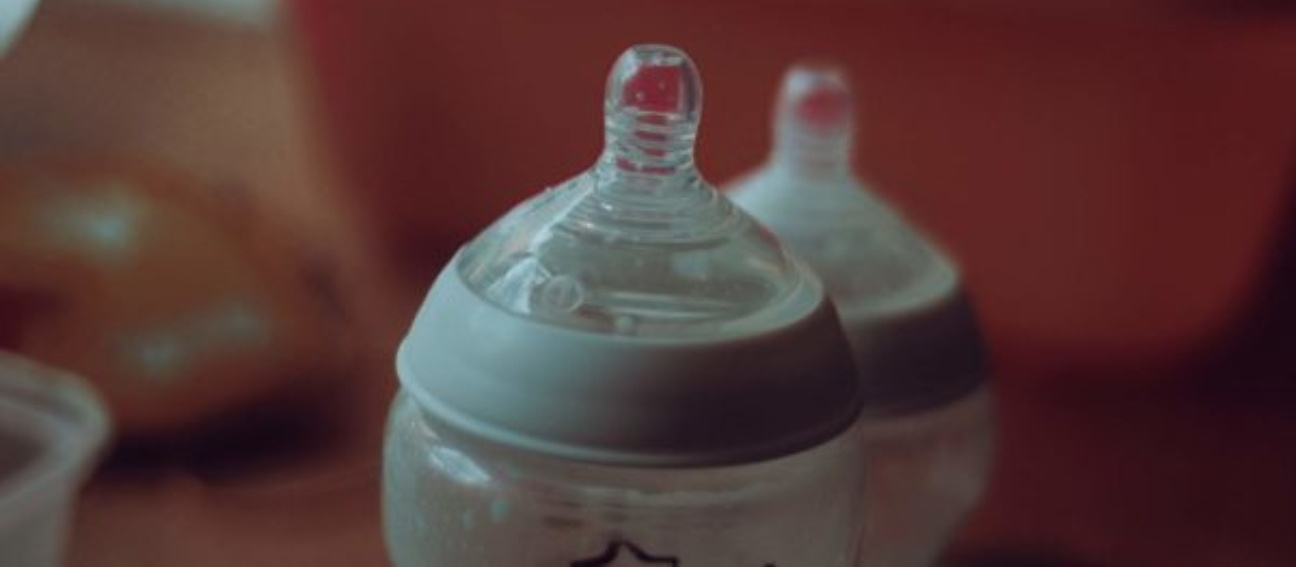
The number of cases alleging the manufacturers’ products are dangerous and sometimes deadly for premature infants has tripled over the last six months.
Katherine Davis
More lawsuits are piling up against Chicago baby formula manufacturers Mead Johnson and Abbott Laboratories over allegations that their cow’s milk-based products are dangerous and sometimes deadly for premature infants.
The first suits of this nature were filed earlier this year across Illinois, Florida, California and other states. In April, about 40 cases were centralized in multidistrict litigation before Rebecca R. Pallmeyer, chief judge of the U.S. District Court for the Northern District of Illinois.
Abbott’s baby formula business turning into a big quagmire
Now the number of cases has more than tripled. As of today, there are 130 cases under the multidistrict litigation group. New cases against Mead Johnson and Abbott, which are among the world’s largest formula vendors, have trickled in almost every month. The suits have all been consolidated under one judge because they each entail similar allegations.
The suits allege that Mead Johnson, the maker of Enfamil, and Abbott, owner of Similac, knowingly advertised and sold cow’s milk-based baby formulas that can cause necrotizing enterocolitis when fed to premature babies. Necrotizing enterocolitis, which typically affects premature babies born before the 37th week of pregnancy, is a gastrointestinal condition that inflames intestinal tissue.
Some of the complaints point to research indicating that premature babies’ digestive systems are unable to digest cow’s milk and instead should only be fed human milk at that age. Incidents have led to severe injuries and, in some cases, death, the lawsuits allege.
A lawsuit filed Sept. 30 alleges Abbott formula led to a premature infant in Louisville, Ky., developing necrotizing enterocolitis, suffering significant injuries and dying in October 2021. The child, Mi’Lani McDowell, was born prematurely at Norton Children’s Hospital, where she was fed Similac, according to the complaint filed by her mother, Dre’Auna Gipp.
“The companies who manufacture these products often intentionally mislabel and misrepresent the contents of the products both to the public at-large and to the health care community, passing off these deadly products as something similar or even superior to human breast milk,” the complaint reads.
Other cases reviewed by Crain’s detail similar anecdotes and allegations.
Gipp’s case is being represented by Elizabeth Kaveny, managing partner at Chicago-based Kaveny + Kroll, who focuses in personal injury and medical malpractice law and is also the plaintiff liaison for the entire group of 130 cases. Of Kaveny’s 50 clients she brought to the litigation group, about 20% allege their baby died after consuming Mead or Abbott formula, she says.
“This case affects thousands of children,” Kaveny says. “It’s the next corporate tragedy in our country.”
In a statement to Crain’s, Mead Johnson denied all allegations, adding that it “has been helping nourish babies for more than 100 years.” The company declined to comment further on pending litigation.
Abbott did not respond to requests for comment but has denied the allegations.
The cases against Abbott are separate from another group of class-action and multidistrict litigation lawsuits from parents who allege their infants were sickened by recalled powder formulas manufactured at Abbott’s Sturgis, Mich., facility. The recall led to the well-documented nationwide baby formula shortage this year that revealed systemic issues at Abbott’s Michigan plant.
The group of cases against both Mead Johnson and Abbott, though, have a long way to go before a resolution is reached between families and the formula companies, attorneys say. Lawyers for both sides are currently selecting bellwether cases, which are essentially test cases taken to trial aimed at providing a clear idea of how a jury will rule on similar cases.
Lead attorneys for the plaintiffs, Mead and Abbott and Judge Pallmeyer will each select four cases that could eventually go to trial. Cases filed on or before Sept. 16 are eligible for selection, according to court filings.
The bellwether cases “will tell a lot about what the public thinks about what Abbott and Mead have done in this situation,” says Diandra “Fu” Debrosse Zimmermann, a partner at Chicago-based DiCello Levitt and a lead plaintiff attorney on the multidistrict litigation.
Besides Zimmermann, other lead attorneys hail from across the country. They include Timothy J. Becker, a partner at St. Paul, Minn.-based Johnson Becker; C. Andrew Childers, a founding partner of Atlanta-based Childers, Schlueter & Smith; Wendy R. Fleishman, a New York-based partner at Lieff, Cabraser, Heimann & Bernstein; and Jose M. Rojas, a partner at Levin, Rojas, Camassar & Reck.
“We hope to seek some justice for these folks in front of a jury,” Zimmermann says, adding that she expects trials to conclude by the end of 2023 or early in 2024. “There are a lot of families who’ve been impacted, and I think more and more people are going to come forward to seek justice.”



